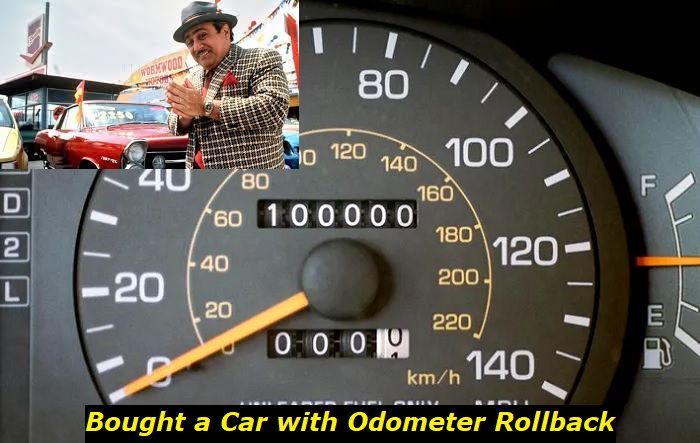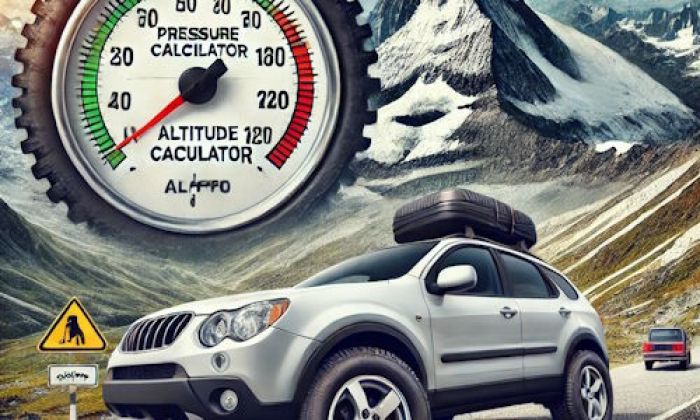Have you ever been on the street and a car, same as yours, making the sweetest of roaring sounds pulls away? Upon a closer look at the vehicle as it passes you, you see the now universal moniker, TDI. You walk away wondering what the owner of that car has done to make it sound so much better than an ordinary car.
Engine sound upgrades highlights
- Commonreasons:pleasure, wish to feel the vibration when driving
- Average prices:$350 - $1,500
- Average waiting time:1 - 3 days
- Common problems:too loud sound, vibrations, no actual gains
- DIY mods:possible
- Level of satisfaction:low

What is TDI, and how does it work?
The TDI badge is now pretty common, especially on European cars. It can be found both on sedans and wagons. The first thing to know is that TDI simply means the engine under the hood is diesel.
The 'T' In TDI stands for turbocharged, and the DI stand for Direct Injection. This means that fuel is injected by sophisticated injectors that are electronically controlled. This means that the amount of fuel and the timing of the exercise are precise, and those injections can be made to be at much higher pressure levels. Using this technology means that depending on your driving condition, the right amount of fuel is injected, enhancing power output and efficiency.
The efficiency of the direct injection system is further enhanced by the turbocharger found in the engine. The turbocharger compresses the engine exhaust gases and pumps them into the air intake. This means the combustion chambers get more air and fuel, making the engine produce more power.
How to make your TDI engine sound better
One can employ several tricks to make their TDI engine sound better. The sound can be heavier than normal or different altogether. Some of the modifications that people do cost hundreds of dollars and, in some cases, thousands. There are other ways to make your car sound better, and the total amount spent will be $20 or nothing. Here are the methods to pick from;
1) Turbo exhaust whistle
A turbo exhaust whistle is a small gadget that acts as a whistle for vehicles or other combustion engine exhausts. The whistle is installed on the tailpipe of a car, and it will take you less than a minute to have it fixed. The lightweight aluminum extension amplifies the turbo whistling sound of your car.
The cost of buying and installing this whistle is cheap as you can install it yourself. Buying the gadget will cost you around $20. The cool thing about this whistle is that it can be fixed on any car, even those without a turbo, and you can remove it any time you want.
Concerns
In the same way, it is easy for you to fix the turbo whistle; it will be easy for someone to remove it. Though cheap, someone mischievous can remove it when you are parked on the street. It is also worth noting that the whistle will not work on a majority of car exhausts. You should, therefore, test it before you can buy it. Though in many situations, people end up loving the whistling sound, there are those cases where the exhaust whistle produces a not-too-present sound.
2) Cold air intake
A cold air intake modification for your engine means the intake is supplied with cold air. This modification can, in some cases, drastically change the sound of your car, besides making your car roar every time you start the engine.
When you install the cold air intake, the car becomes faster since the engine produces more torque, and the overall horsepower output increases. The colder air means that the fuel efficiency also improves marginally. It is worth noting that the sound gets better on higher RPMs.
Concerns
Though installing a new cold air intake will take you around two hours, it is a bit pricey as it will cost you anything from $400. The other thing to consider when you opt for this option is to avoid those with metal tubing, as they tend to get hotter than plastic ones and are also not flexible.
3) An open-box air filter
An open-box air filter is a cool way to increase the sound of your TDI engine. It will cost you nothing to convert your vehicle's closed air filter to a closed one. It is also pretty easy to install an open-box air filter. The open option allows a lot of air into the engine's air intake, making the engine breathe better.
Concerns
This option doesn't come with any performance benefits for your car. It is also worth noting that since the intake is open, all manner of debris and dirt can enter the engine. Such debris will likely cause severe damage to the engine. The filter is also affected by engine heat, making it less efficient.
4) Increase boost pressure
When you increase the boost pressure, the engine gets more air, which means more fuel is added to the combustion chamber. Consequently, more power is produced. More boost pressure means increased turbo spooling, which is caused by the increased turbine spin. Increasing boost pressure requires some expertise, which means playing with some ECU data.
Concerns
When you are determined to improve your car's sound through increased boost pressure, remember that over-boosting can cause damage to the turbo and the engine. The damage will happen because the wastegate in the turbo can be forced to close completely, making the engine intake get excessive boost at all RPMs.
This mod is quite expensive, as it will set you back around $1,000. In addition, remapping the ECU means you are tampering with the vehicle's factory settings, which will most certainly invalidate your insurance and warranty in some jurisdictions.
5) A larger exhaust
Many car enthusiasts have tested the larger exhaust experiment on their vehicles. A bigger exhaust produces more sound; if done correctly, the sound will be deeper and more appealing to your ears. An aftermarket exhaust system will do the trick. The sound will even be much better when you combine the exhaust with a high-flow muffler.
Concerns
The main concern of the larger exhaust system is the cost. It can go for between $300 and $1,500 or even more. Besides the cost, high expertise is needed to ensure the exhaust fits perfectly to the car system. Another thing to worry about when you go this route is the reduced fuel economy and the legal hurdles you might face in some jurisdictions. In some cases, modifying the exhaust system voids the warranty on your car.
6) Invest in a larger downpipe
A downpipe is a type of pipe that directs exhaust gases from the turbo into the car's exhaust system. The downpipe is meant to move exhaust gases through the exhaust system as efficiently as possible and enhance the turbo's performance.
A catalytic converter restrains the stock downpipe's maximum passage of exhaust gases. However, when you install an aftermarket downpipe much wider than the stock option, you increase the space where the turbo spin can move faster, making better and louder sound.
Concerns
You must first confirm whether the downpipe on your vehicle has one or two catalytic converters. Take care to only fit a catted downpipe to avoid breaking the law. Installing a downpipe will cost you around $300. However, this is a job best done by an experienced mechanic.
7) Get a new turbocharger
The engine on your TDI is accompanied by a turbo of certain specifications that allow the engine to produce a certain horsepower. If, for some reason, you feel that the turbo's output is wanting, you can opt for a bigger, more powerful turbo. The things to consider when upgrading the turbo include its size, the exhaust housing, and the impeller condition.
Concerns
A bigger turbocharger means more cost both for buying it and installing it. You have to engage the services of a qualified mechanic who will tune the new turbo to your engine.
Conclusion
A TDI engine is a cool and capable engine. In most cases, the factory settings on this engine are such that you might never even notice the effects of the turbo. A little tweaking, however, will leave you enthralled and thrilled to the point of wanting more.
While a better sound from your engine is what you might crave, it is prudent to keep safe. Removing the engine cover and other types of mods can make your car unsafe. Also, consider the effect a TDI modification can have on your warranty or insurance coverage.
About the authors
The CarAraC research team is composed of seasoned auto mechanics and automotive industry professionals, including individuals with advanced degrees and certifications in their field. Our team members boast prestigious credentials, reflecting their extensive knowledge and skills. These qualifications include: IMI: Institute of the Motor Industry, ASE-Certified Master Automobile Technicians; Coventry University, Graduate of MA in Automotive Journalism; Politecnico di Torino, Italy, MS Automotive Engineering; Ss. Cyril and Methodius University in Skopje, Mechanical University in Skopje; TOC Automotive College; DHA Suffa University, Department of Mechanical Engineering






Add comment